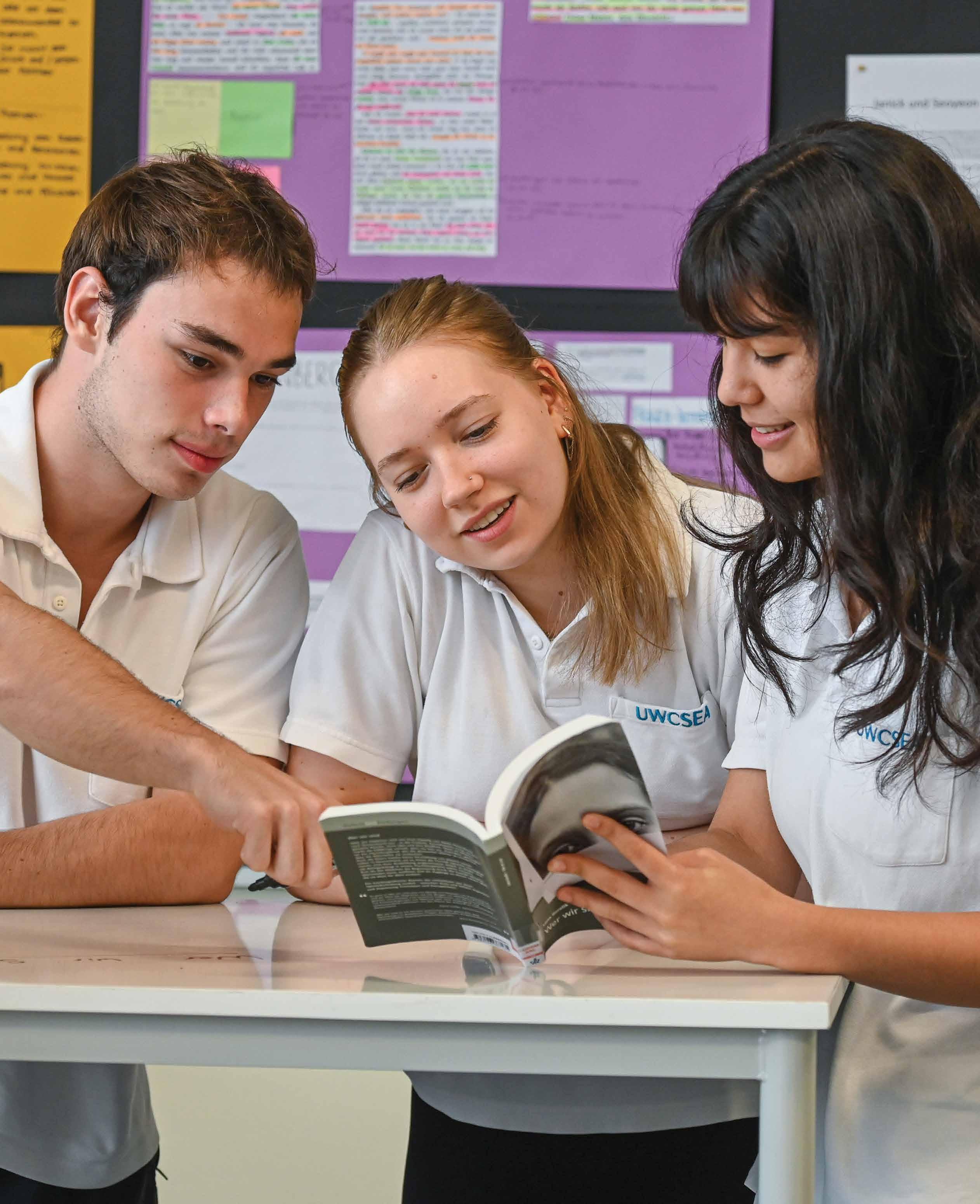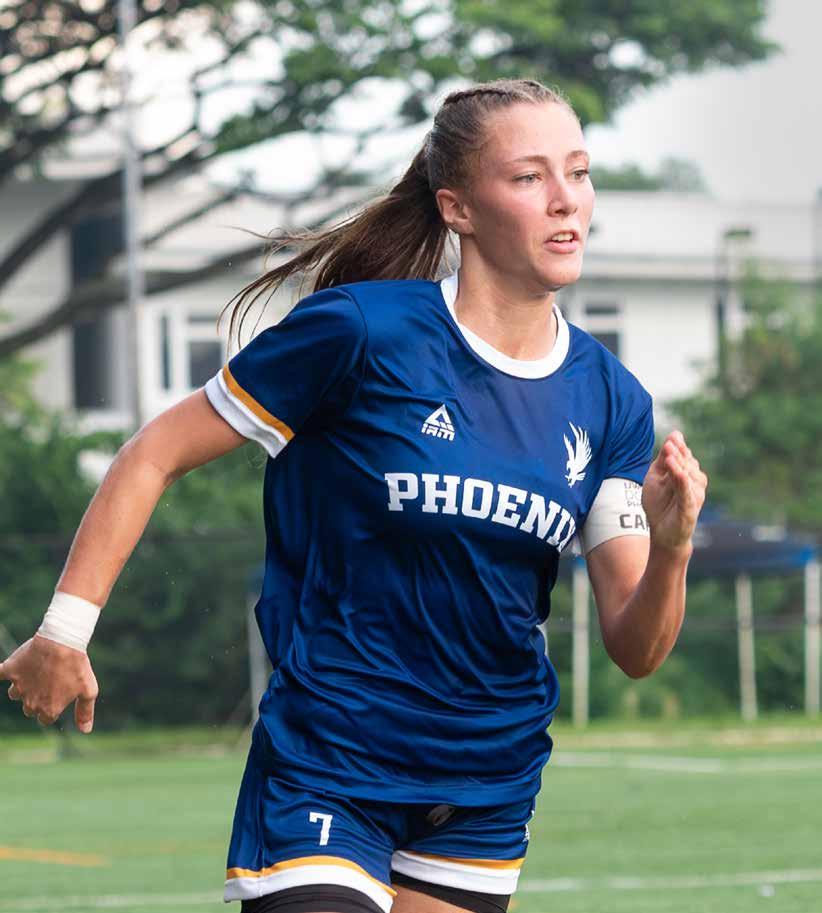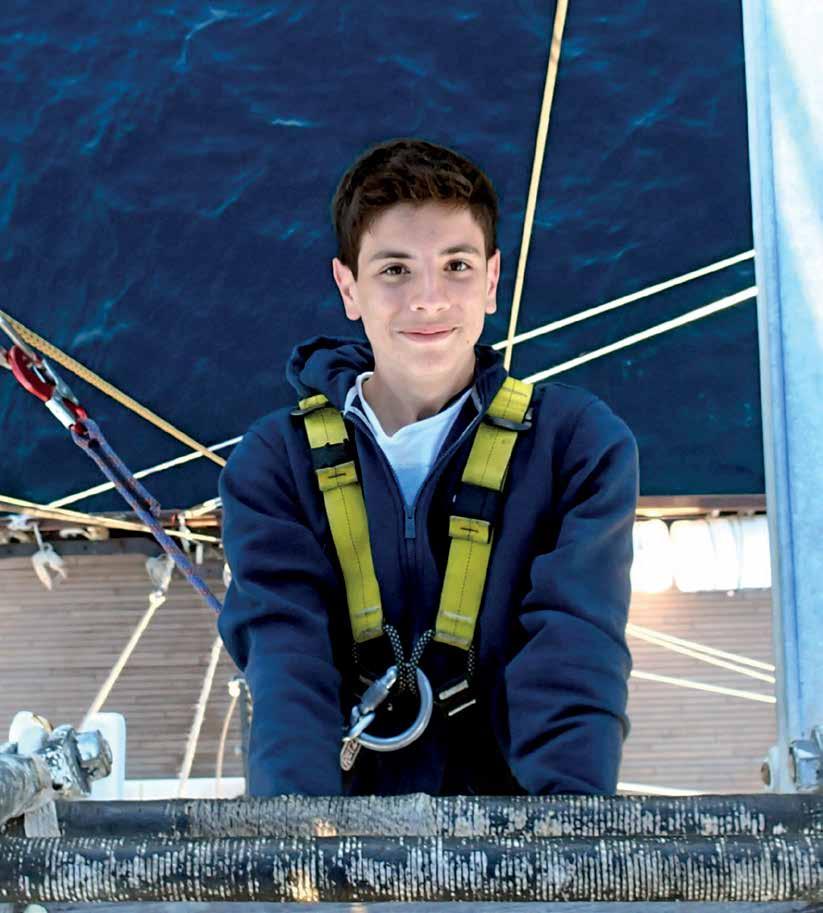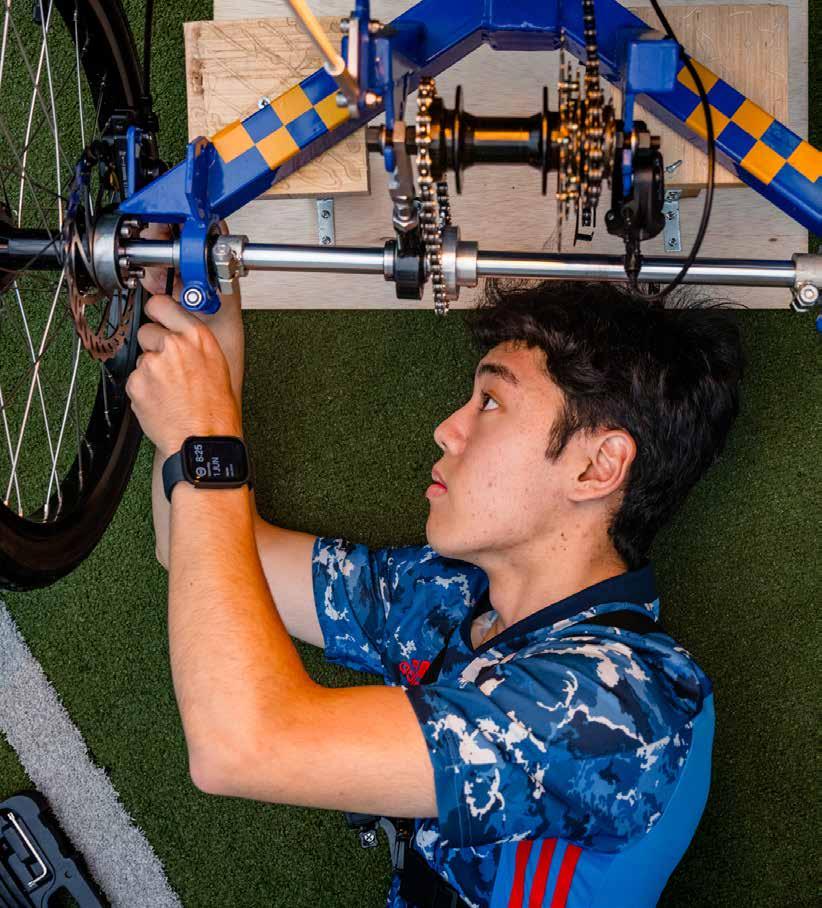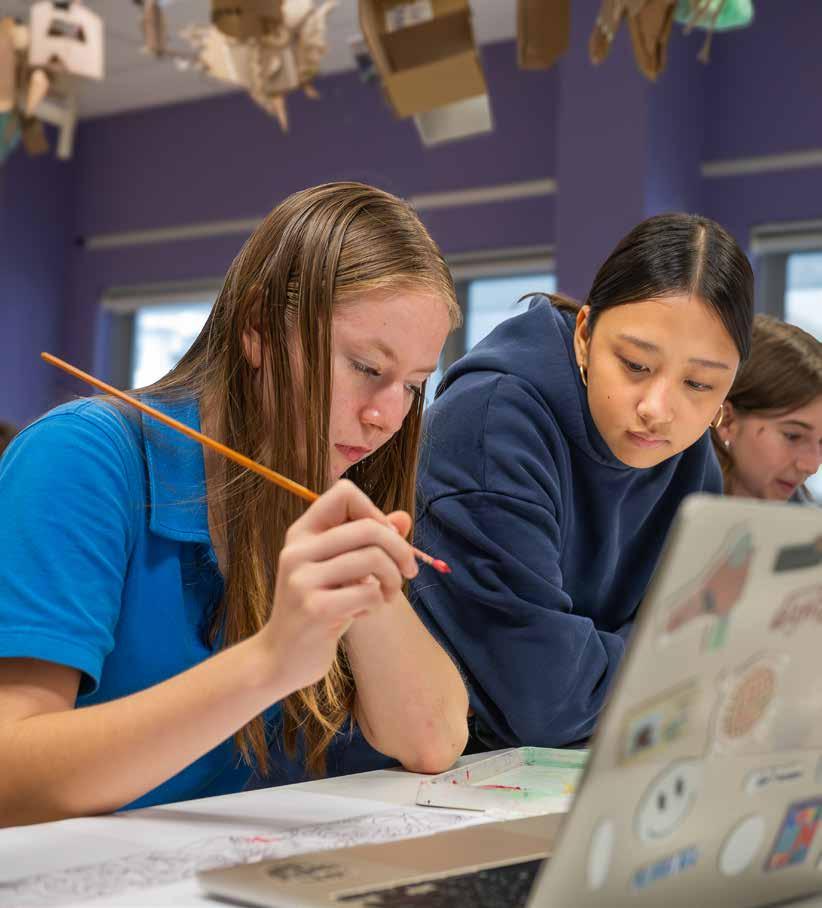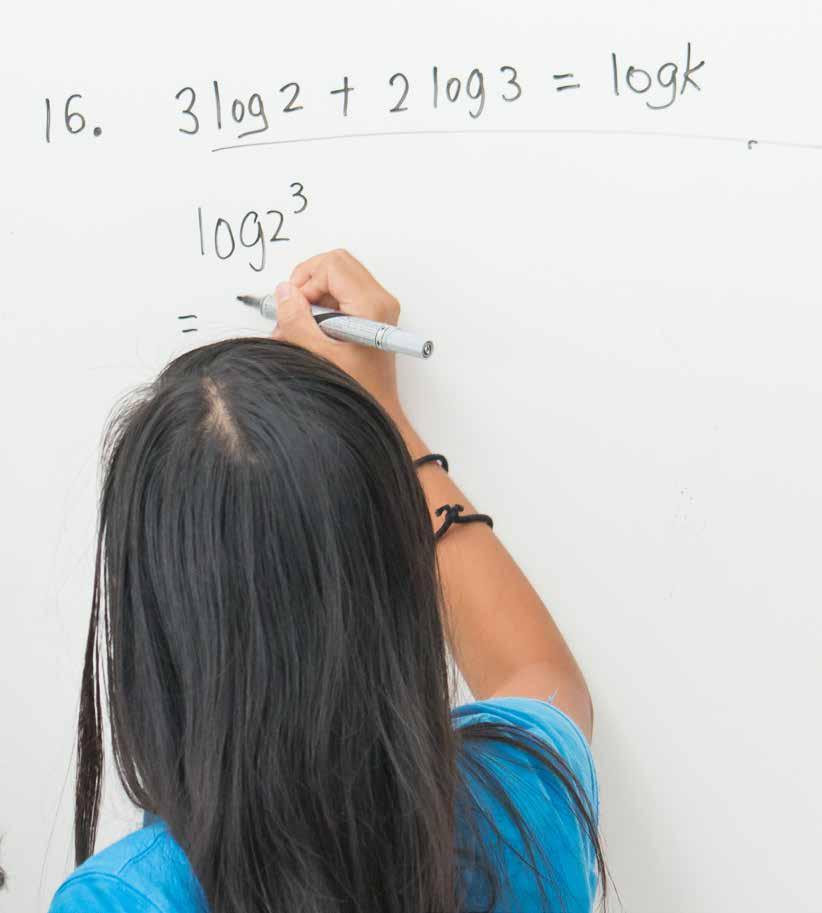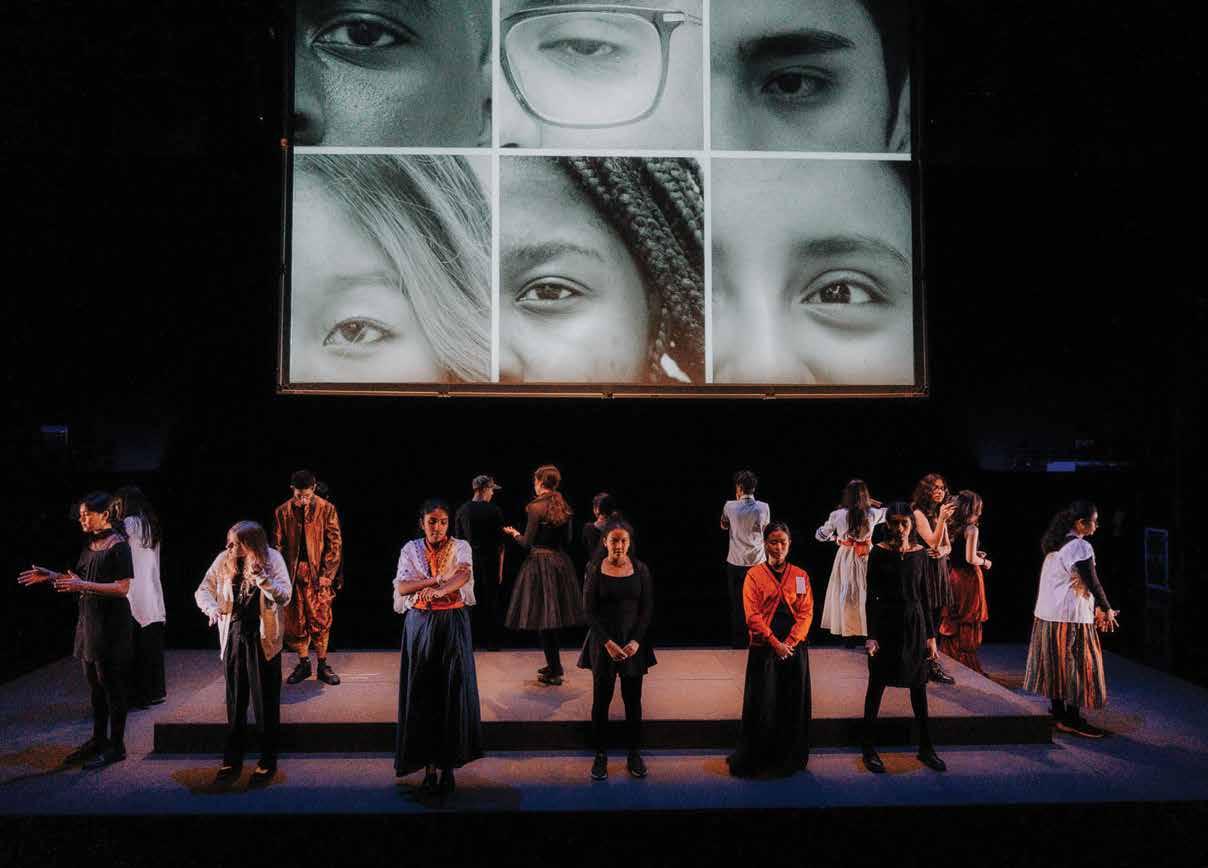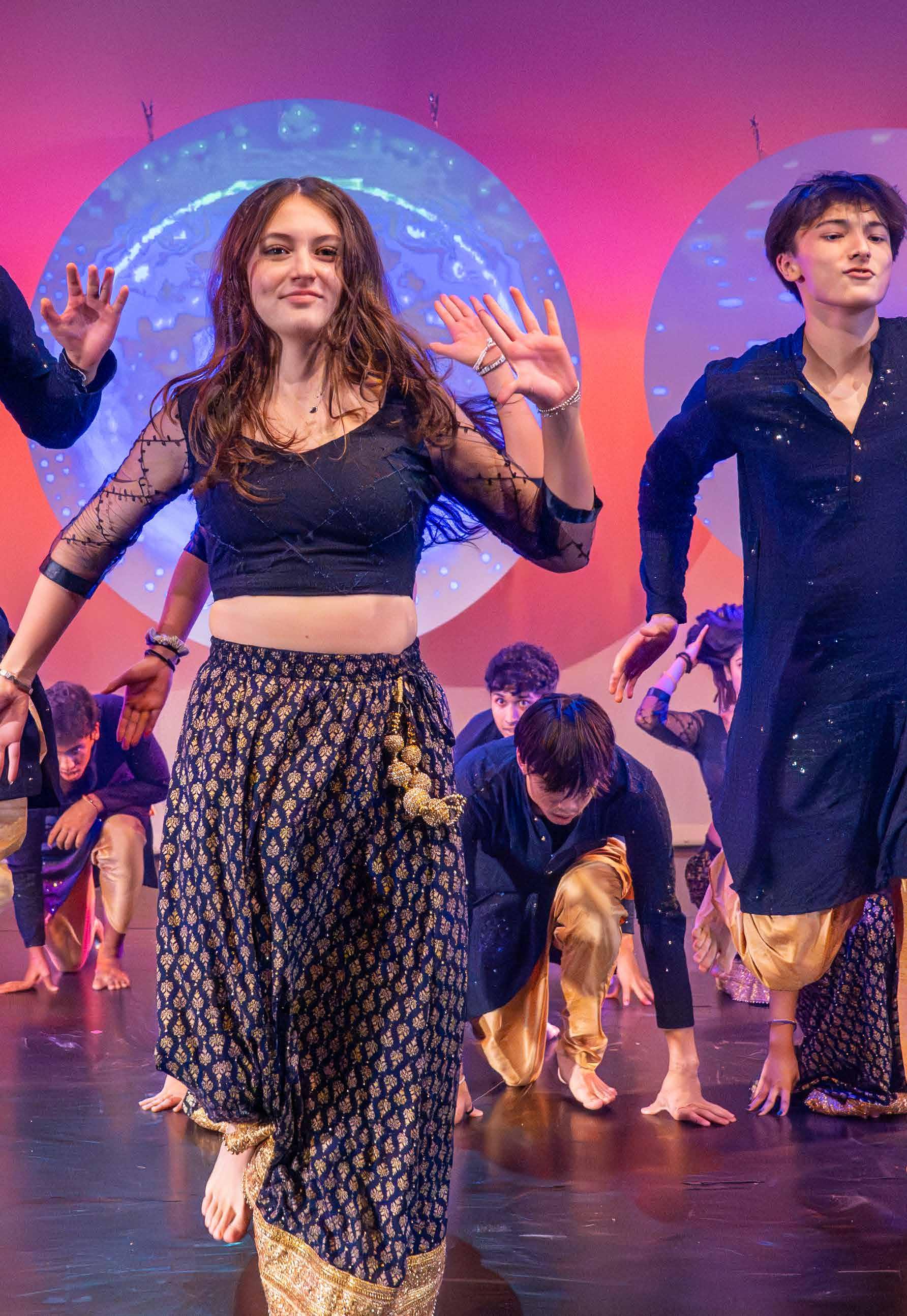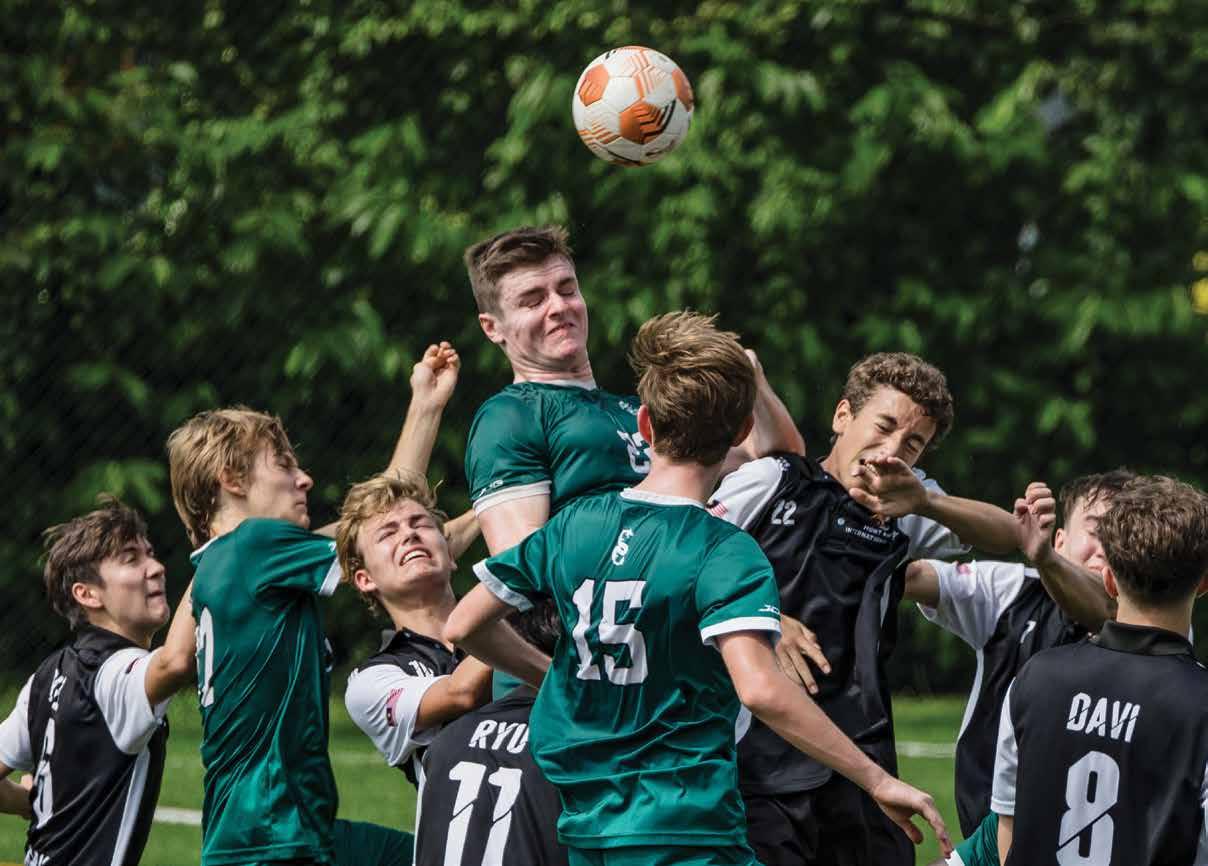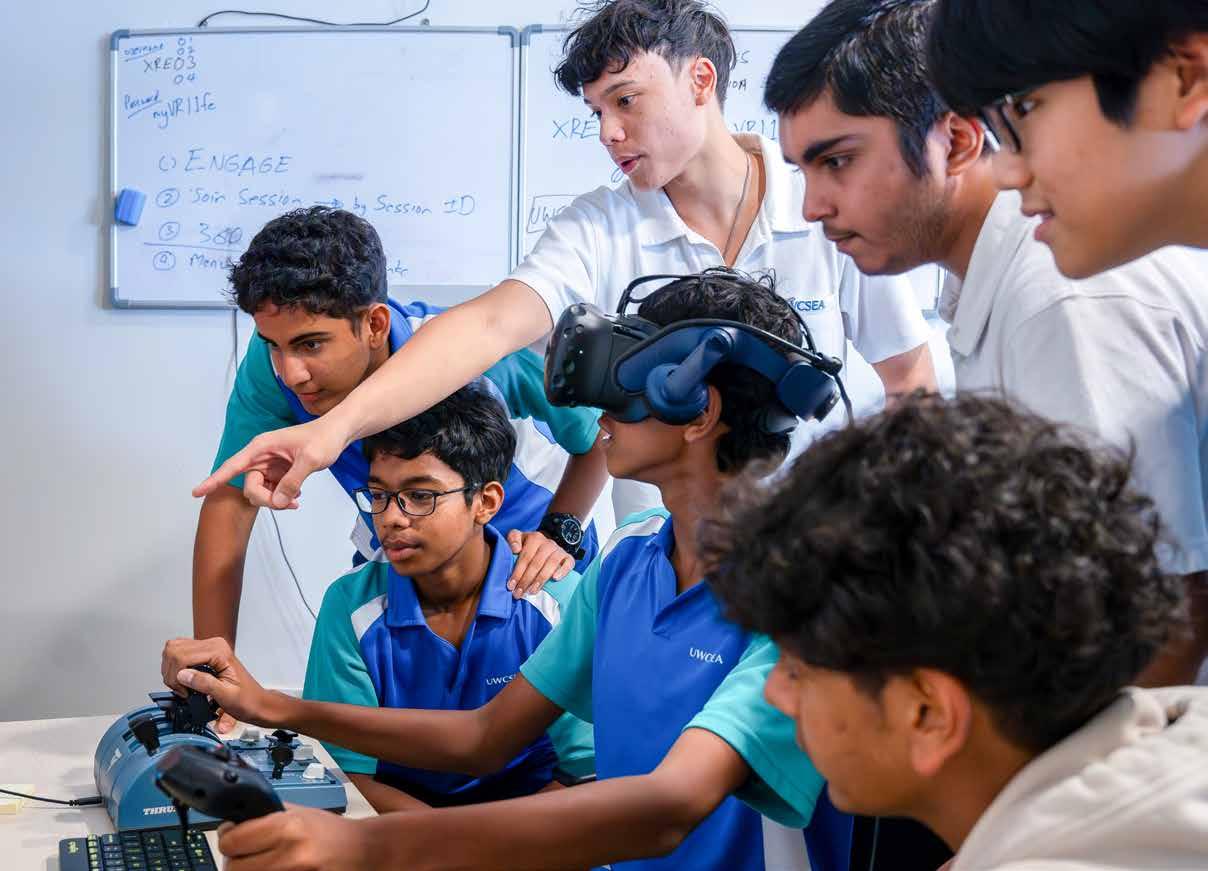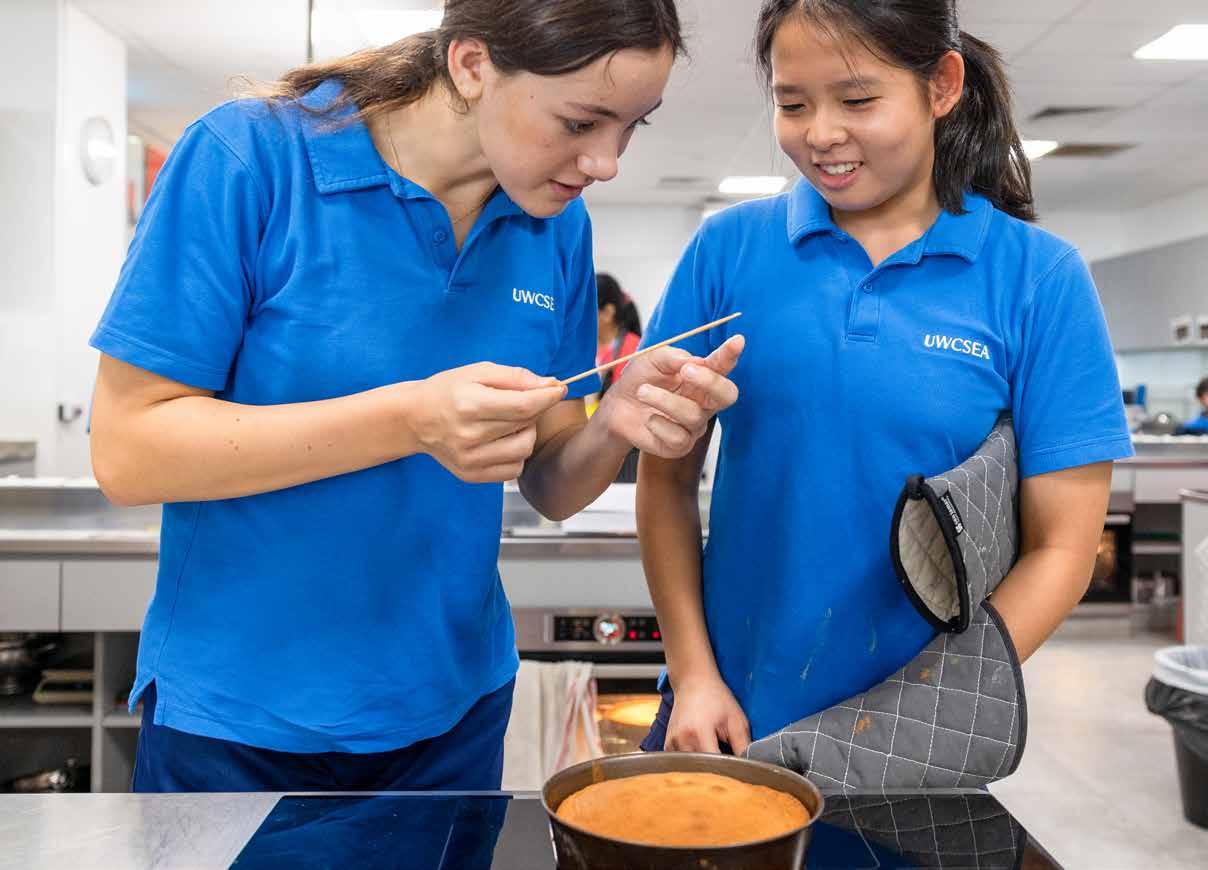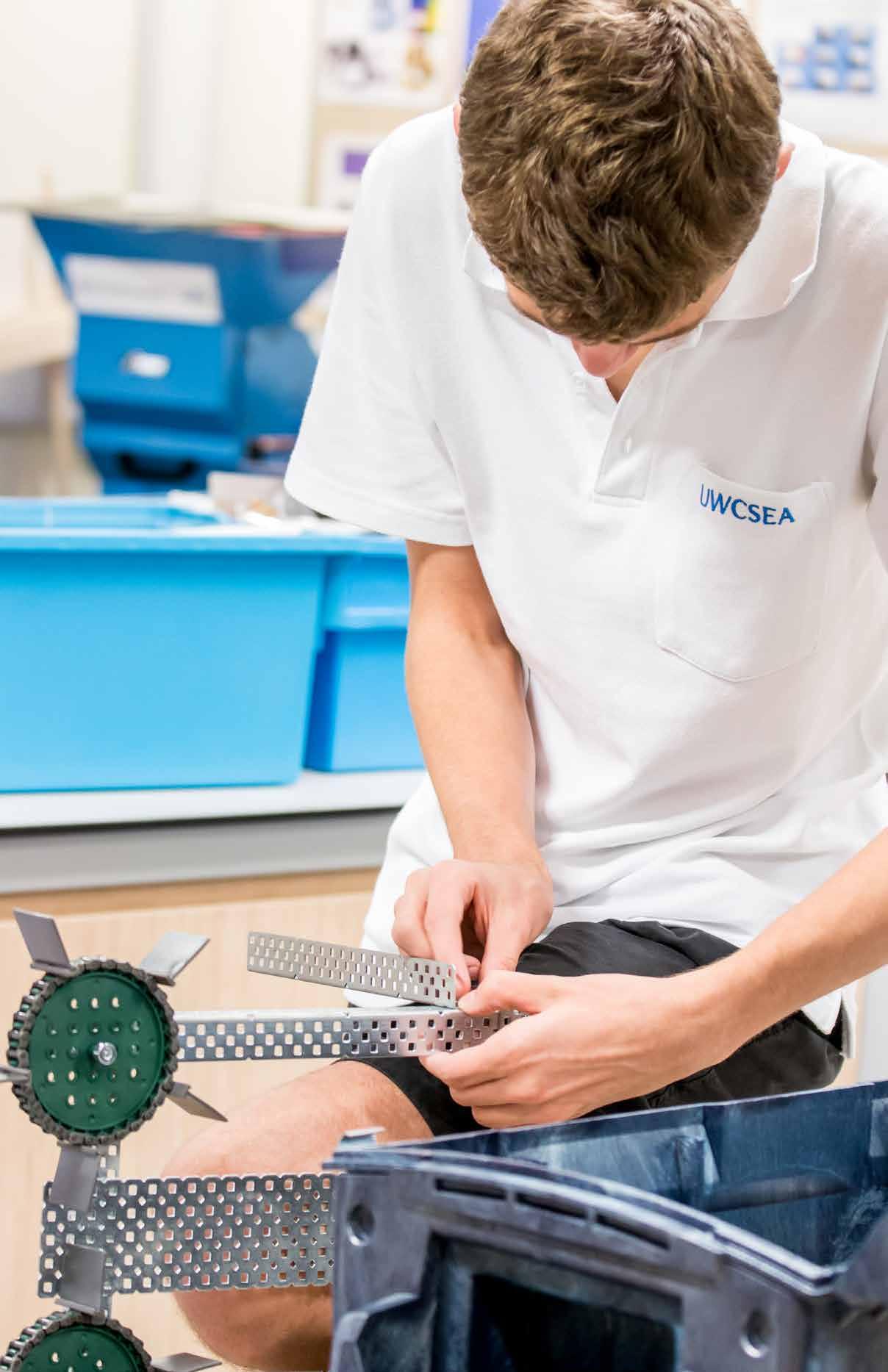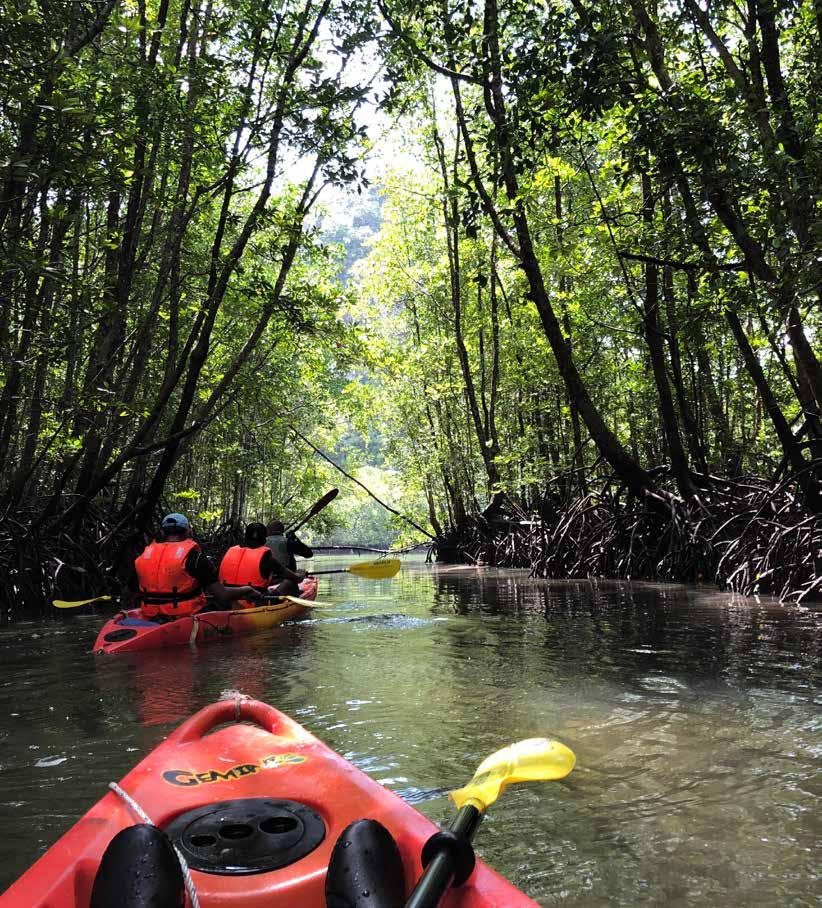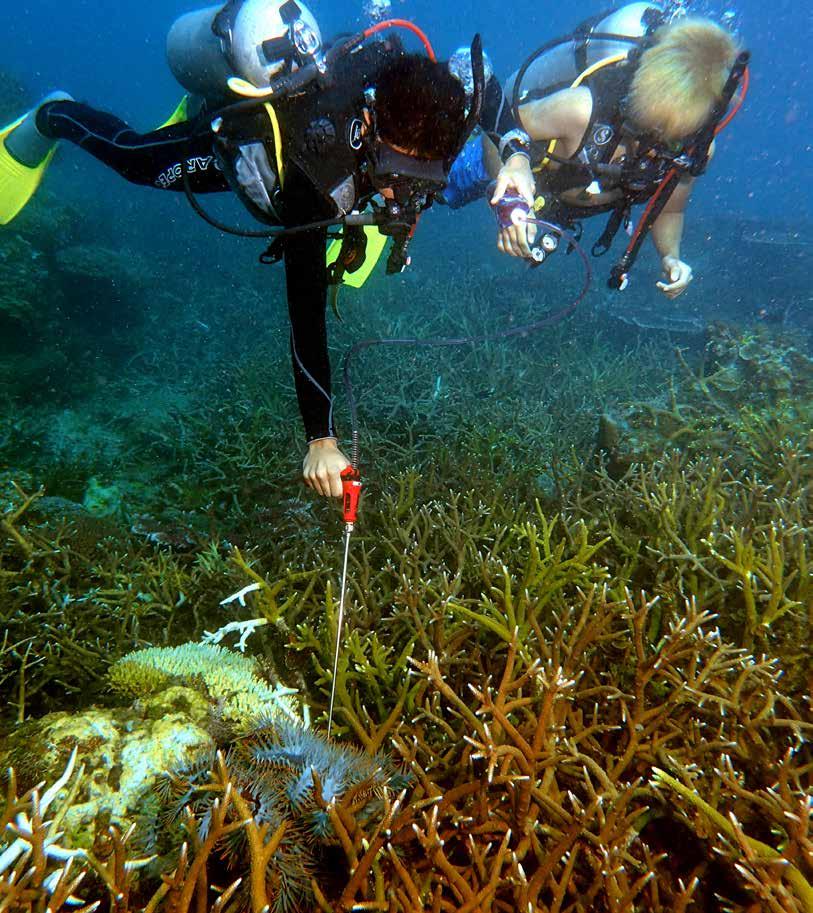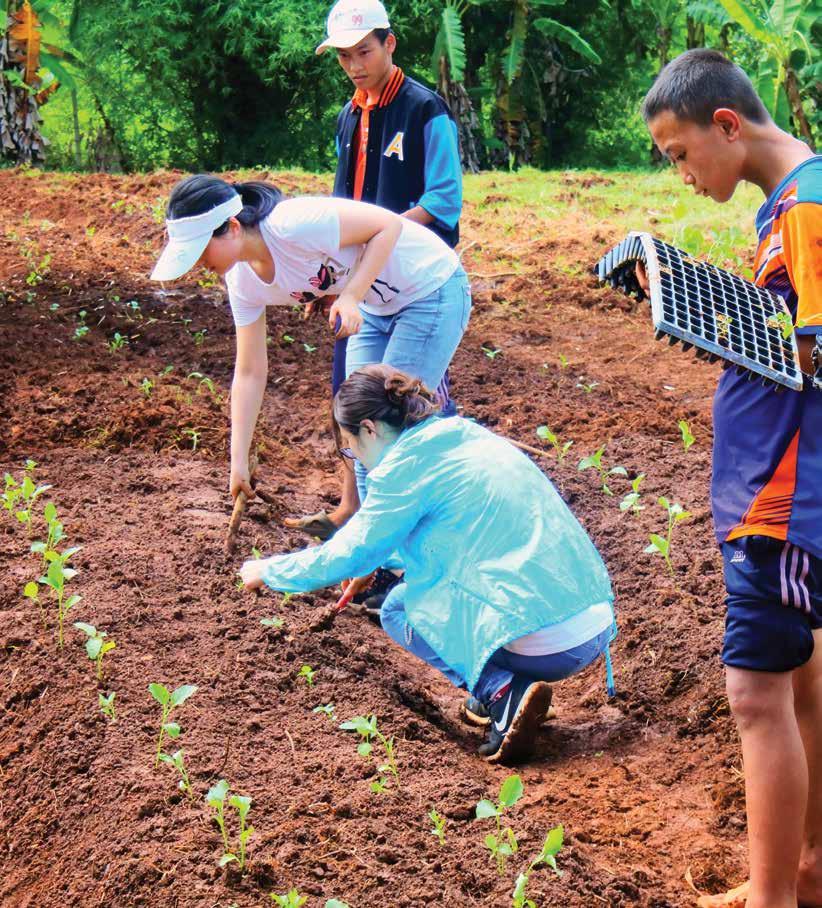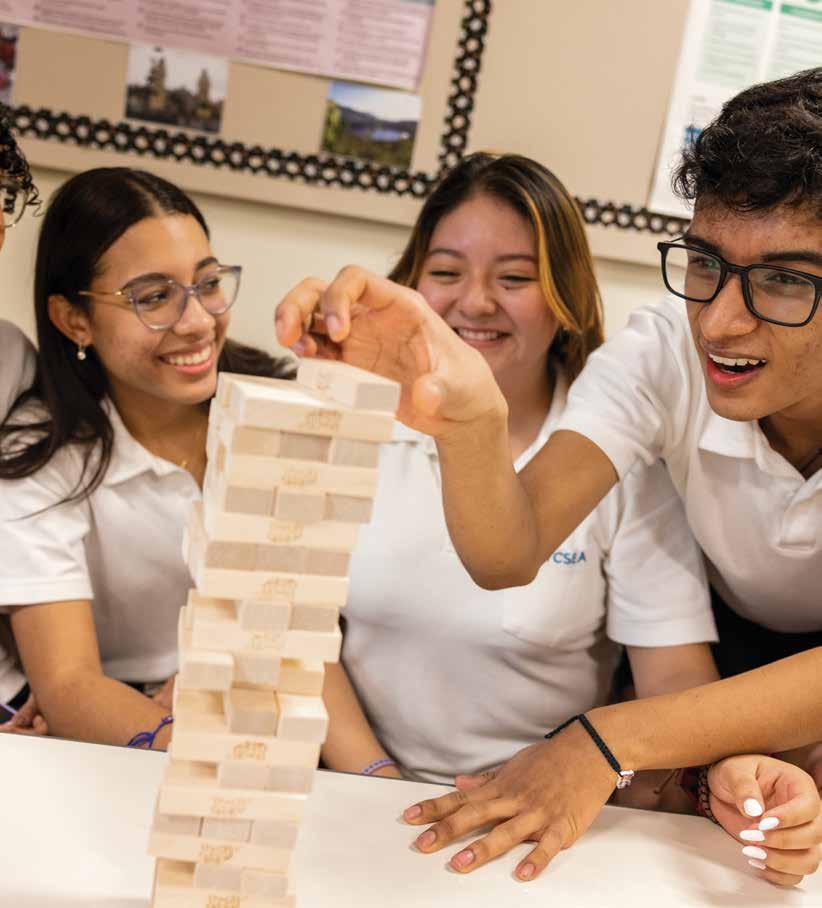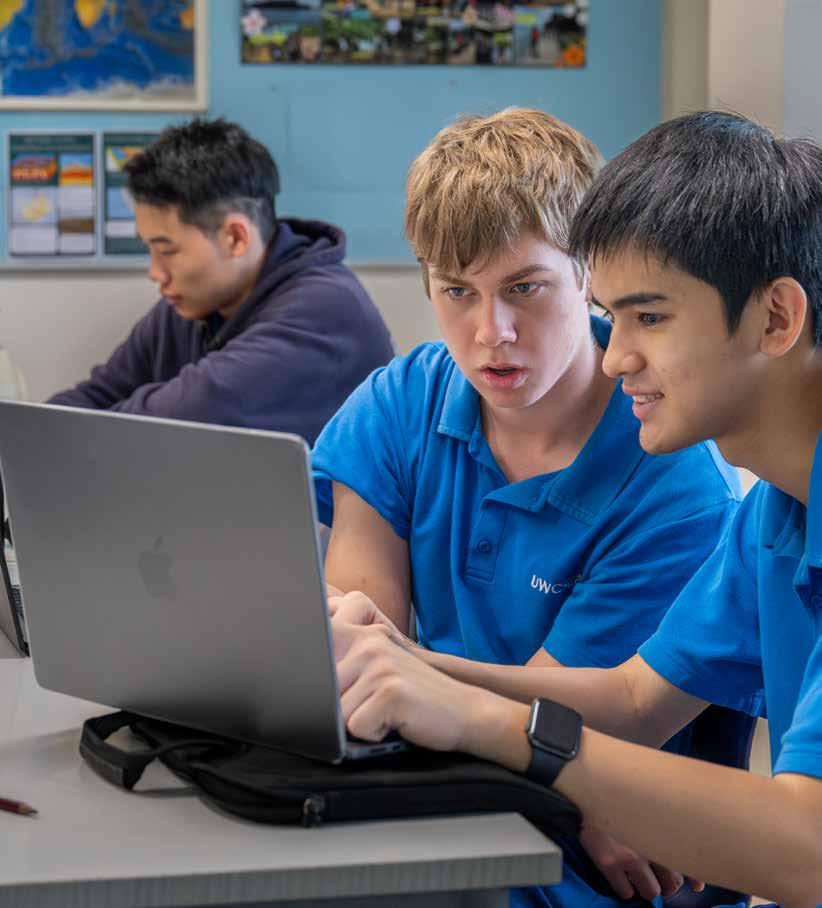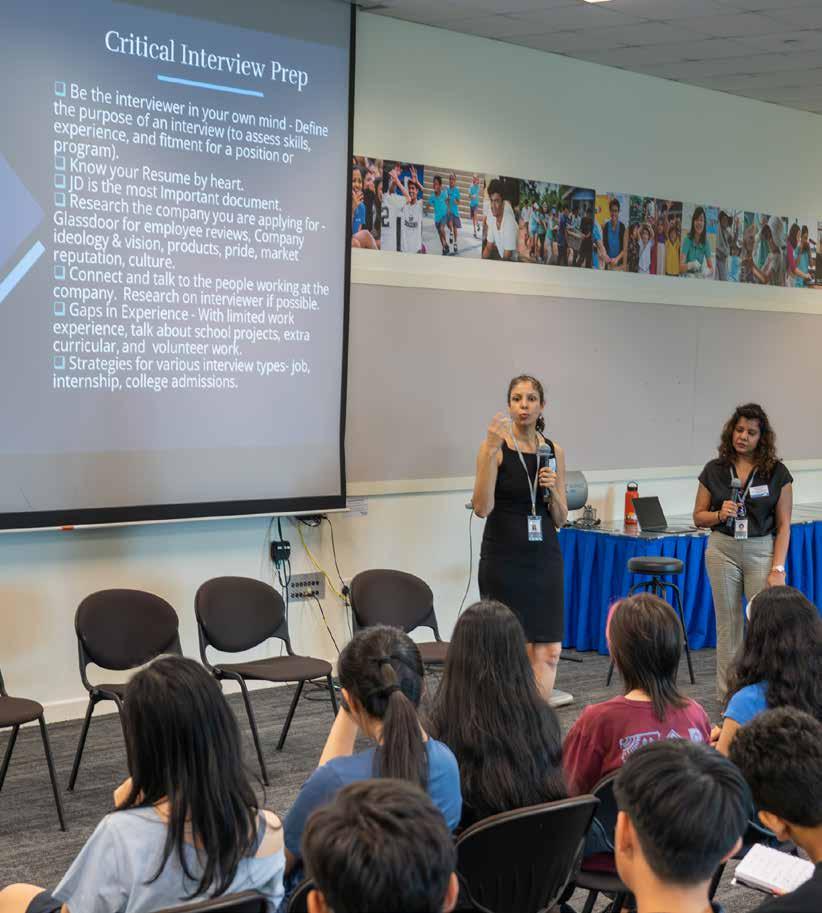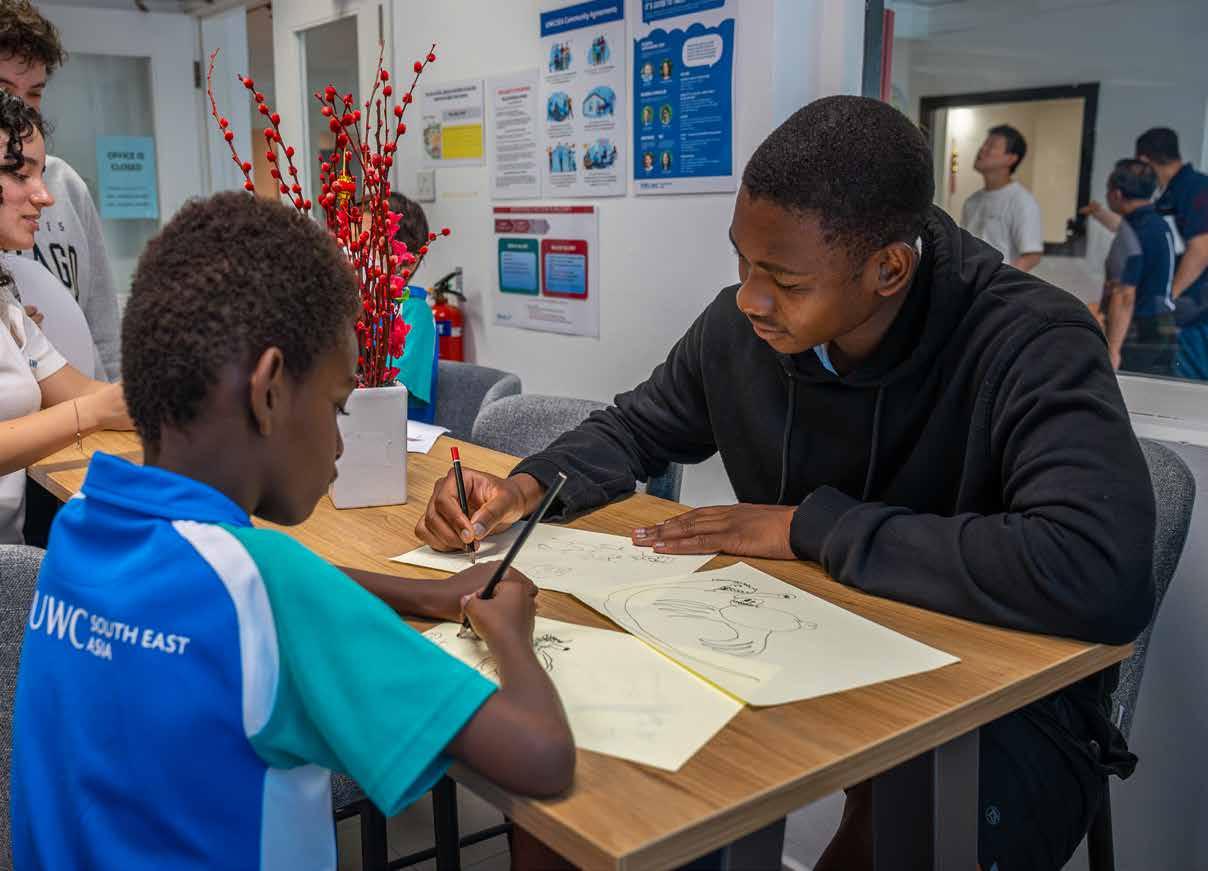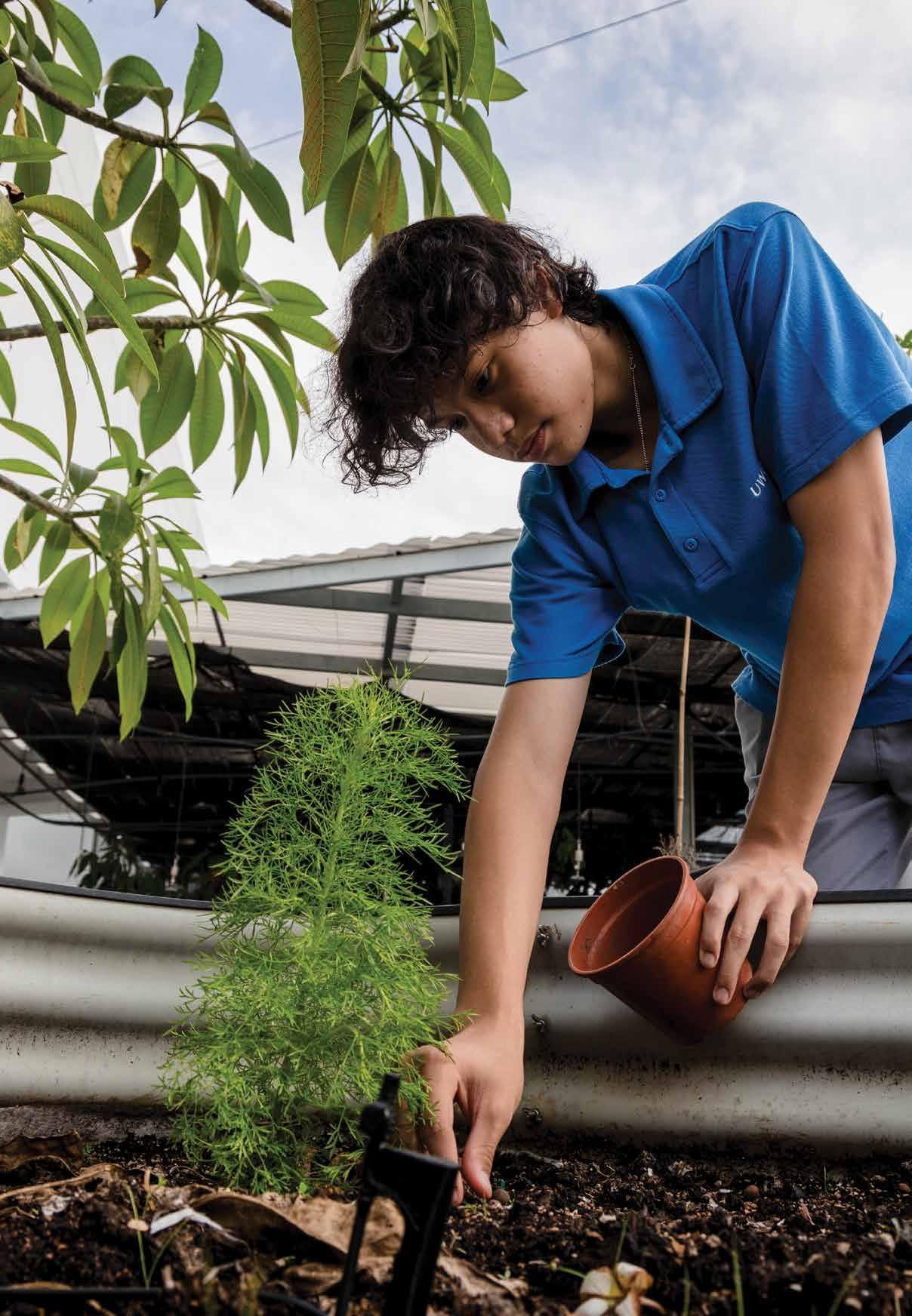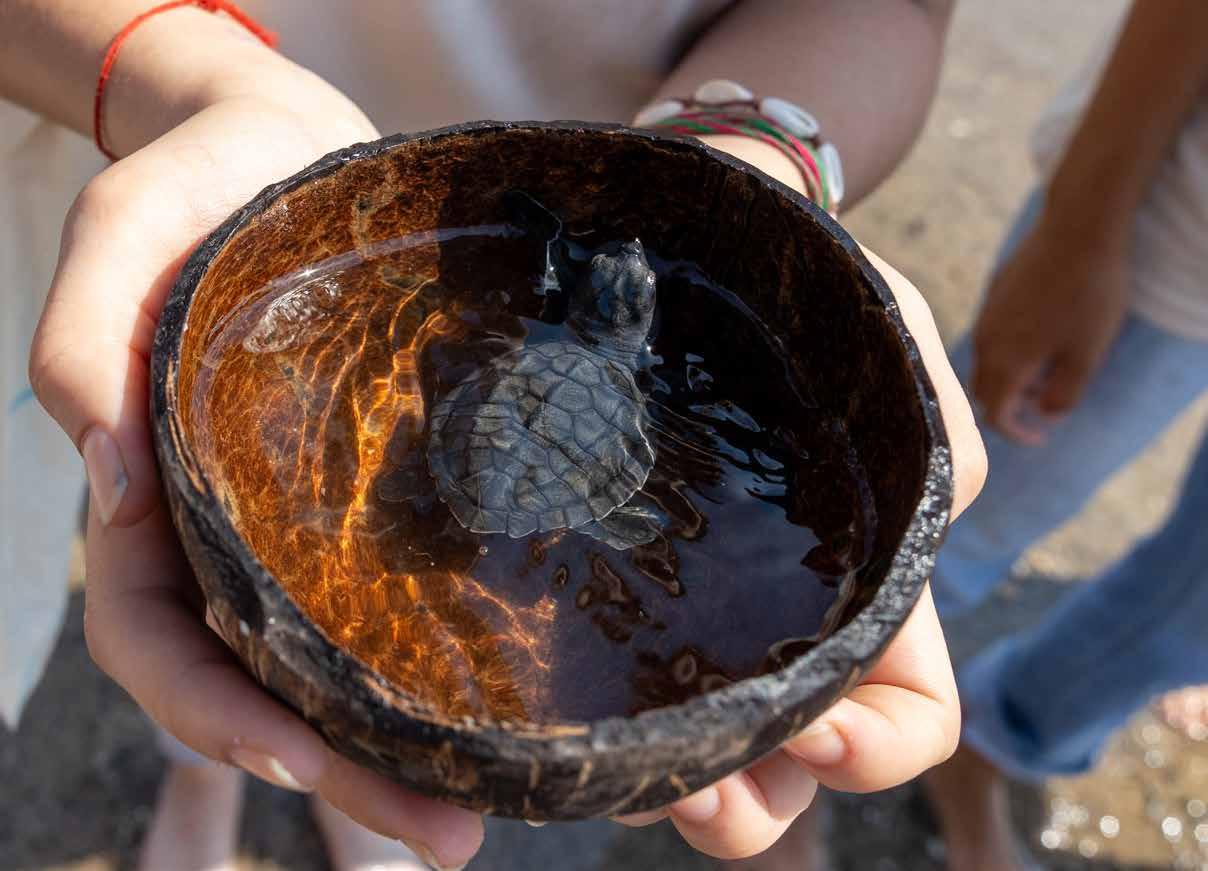About the UWCSEA curriculum
At UWCSEA, we offer a wide range of opportunities to help your child grow through our holistic Learning Programme. This programme includes five key areas: Academics, Activities, Outdoor Education, Personal Social Education (PSE), and Service. Each of these elements are equally important, recognising that all will play a part in helping to achieve our educational goal and enable our students to develop mission competency.
UWCSEA is dedicated to providing a written curriculum that is both challenging and age-appropriate. Our curriculum is carefully structured to ensure that your child’s learning experience is meaningful and aligned with our mission, no matter their age or educational background when they join the College.
Our written curriculum is organised by six domains, which align closely to broad academic disciplines. Some courses will pull curriculum from multiple domains (e.g., Environmental Systems and Societies draws from both Science and Humanities). The six curriculum domains can be seen below with discipline curriculum examples:
The design of the curriculum is informed by the UWCSEA mission statement, educational goal, College values, the needs of our students, and research-based practice.
At UWCSEA, we use a concept-based curriculum which organises learning using concepts and conceptual understandings, rather than simply listing topics or facts.
The written curriculum explicitly articulates learning goals through three key areas:
• Conceptual Understandings (what students should understand)
• Knowledge (what students should know)
• Skills (what students should be able to do)
This approach ensures that learning is deep, transferable, and prepares students to connect their understanding to real world contexts.
Sciences and Technology
and Design UWCSEA Curriculum Domains Humanities Mathematics
Academic programmes
There are two entry points into our High School, depending on the age of the student. Regardless of the entry point, we offer all students support and preparation to ensure success at the end of High School and into the next stage of schooling.
Grade 9/10 Programme
The UWCSEA Grade 9/10 programme is unique to the UWCSEA High School Diploma, drawing on the very best of international education and research to provide a bespoke experience for our students. This programme has been crafted by our experienced educators to meet the distinct needs and aspirations of learners at this important stage of their development, while providing an excellent foundation for Grades 11 and 12—whatever their futures might hold.
The UWCSEA Grade 9/10 programme is driven by the singular ambition of the UWCSEA Mission, and encompasses all five elements of our holistic learning programme. Our students benefit from additional choice and agency in their learning, as they create their individual pathway to graduation and life beyond school.
Learning is assessed internally against UWCSEA’s conceptbased standards and benchmarks, and is informed by the assessment model for the IB Diploma.
Languages
At UWCSEA, the language of instruction is English. In addition to English or English as an Additional Language (EAL) lessons, almost all students take another language. This can be a First Language, (which includes a language learned as a child, other languages spoken at home and/or in previous school setting, as well as ‘heritage languages’, which are languages spoken by a parent, grandparent or ancestor). Alternatively, students can take a Foreign language— also known as Language Acquisition. For more detailed information, please refer to our Languages factsheets or contact Admissions.
Grade 11: IB Diploma Programme
Students who meet the requirements, which are based on criteria linked with the UWCSEA Learning Programme, graduate with a UWCSEA High School Diploma at the end of Grade 12. The vast majority of students also undertake the two-year IB Diploma which is respected by universities throughout the world. In 1977 UWCSEA was the first school in Asia to introduce the IB, and our Diploma Programme has been developed in close collaboration with the IB since then. While the majority of students enrol in the full IB Diploma, UWCSEA also offers certificates in individual IB Courses for students who meet our entrance criteria.
Systems Transformation: Leadership for Change
UWCSEA is the only school in Asia (and the second globally, alongside UWC Atlantic) to offer this innovative new course as part of a pilot programme with the IB. This bold new undertaking gives students greater flexibility to pursue their interests in complex, interdisciplinary, UWC Mission-aligned areas, such as sustainable development, peacebuilding and intercultural understanding.
UWCSEA Careers Programme
The UWCSEA Careers Programme supports High School students in gaining the knowledge and understanding to navigate their future career paths. Students gain first-hand exposure to professional environments, building their confidence, and expanding their networks. Built on four core pillars—Company Visits, Internships, Major Events and Mentorships—the programme is designed to bridge education and the world of work giving our students a head start in preparing for their futures.
More details can be found on this webpage: https://www.uwcsea.edu.sg/careers-programme
Activities
Our comprehensive Activities programme presents students with opportunities to try new things, discover new talents and further develop their passions, as well as make new friends through the sharing of common interests.
A wide range of activities in the Arts, sports, leadership and special interests is offered each week in four activity and service ‘seasons’ throughout the year. All students are required to participate in activities as part of the Grade 9/10 programme, usually about three to four hours per week during lunchtime and after school.
The programme is structured so that students develop self management skills and maintain a balanced lifestyle. Activities also contribute towards Creativity, Activity and Service (CAS) requirements for the IB Diploma.
Drama, Dance, Music and Instrumental Teaching
We have a full annual calendar of drama, dance and music productions and extensive programmes in instrumental teaching. Student musicians have the opportunity to participate in a number of musical and vocal ensembles and perform in several concerts per year. Ensembles include Symphonic and Jazz bands, Singing, Percussion and Pamberi All Stars African music ensembles, Chamber and Symphony orchestras and more. The instrumental teaching programme offers music lessons on a vast range of instruments. Instrument hire is also available.
Performance opportunities include the annual UN Night and CultuRama in Term 1, which celebrate the diversity of cultures in our community. Throughout the year, students are invited to audition for a number of drama and dance productions. They do not need to be taking Arts subjects to be involved—nor do they need to be on stage, as there are opportunities for costume, set design, art direction and more.
Sports, Health, Fitness, and Wellness
UWCSEA’s strong sports programme under the Phoenix banner at Dover Campus and Dragons at East Campus includes representative opportunities in badminton, basketball, climbing, cross country, football, golf, gymnastics (girls), hockey, netball (girls), rugby (boys), sailing, softball, swimming, tennis, touch football and volleyball. A number of other sports, such as martial arts and rock climbing, fencing and ultimate (Frisbee), are offered on a recreational basis as are general fitness and wellbeing activities such as yoga, dance and meditation and mindfulness.
Leadership, Innovation and Creativity
A diverse group of activities nurture creativity, problem solving skills and artistic talents. They are taken from the fields of technology, fine and visual art, writing, design, food science, construction and engineering.
Students also have ample opportunity to develop leadership skills through participation in the Student, Arts or Sports Councils, and the Service Executive Committee. They can take part in Model United Nations conferences (in Singapore and overseas); the National Youth Achievement Award (NYAA) (similar to the Duke of Edinburgh Award); and an array of student leadership groups. Other leadership activities include coaching sports for Primary School students.
Special interests groups such as inter-school debating; and groups exploring economics, history, mathematics and philosophy are available. Students can explore their creativity through creative writing, journalism and student publications; digital arts, music technology and photography; cooking, robotics and more. In addition, subject-based ‘clinics’ are available for students who want to further focus on some academic areas via the activities programme.
Initiative for Peace (IfP)
In Grade 11, students have the opportunity to take part in UWCSEA’s unique IfP programme which draws on their leadership skills and creativity. Students spend one year exploring conflict and peace through different lenses and activities. The programme culminates in a weeklong studentled peace conference in a post-conflict or conflict-affected area engaging other youth.
Dedicated innovation spaces
The IDEAS Hub (Dover Campus) and Innovation@East (East Campus) are dedicated spaces equipped with tools and technology to guide and inspire students to explore, innovate, collaborate and create sustainable solutions addressing real-world problems and needs within their community.
Students can experiment with activities such as filmmaking, woodworking, 3D printing, crafting, coding, prototyping, DIY repairs, painting, sewing, cardboard construction and robotics.
Students are encouraged to adopt interdisciplinary thinking, to ruminate on solutions, tinker with ideas and develop an innovator’s mindset. They are empowered to create products, services and systems while keeping the UWC Mission at the forefront of their thinking.
Outdoor Education
High School offers outdoor education expeditions that develop students across all aspects of our learner profile. All students must participate in at least one expedition in Grade 9 or 10, as the personal and social development opportunities are impossible to replicate in the classroom. UWCSEA’s overseas travel operates in accordance with the College’s robust health and safety guidelines and sustainable trips framework.
Grade 9 adventure programme
Grade 9 students are offered a variety of challenging expeditions during the March/April and June/July holidays. These 7-19 day expeditions, run by our in-country partners, are not with their mentor groups, but with other Grade 9 students from both Dover and East campuses. Destinations include India, Indonesia, Maldives, Malaysia, Thailand, Australia, and Japan, and activities include trekking, rafting, sailing, mountain biking, and kayaking. Locations can be remote, accommodation is often basic and the food will reflect the local culture of the host country.
Grade 10 adventure programme for new students
Students who join UWCSEA in Grade 10 are expected to participate in a Grade 10 expedition, which takes place during the March/April and June/July school breaks. They include students from both campuses and offer a choice of destinations with varying outdoor challenges and durations. The expeditions help new students deepen friendships, build a sense of belonging, and cultivate key skills and mindsets that prepare them for Project Week which takes place in May of Grade 11.
For returning Grade 10 students who have already completed an expedition in Grade 9, they are able to apply to join a Grade 9 or Grade 10 expedition if spots become available.
Grade 11 Project Week
Project Week is a unique experiential trip-based educational programme that allows Grade 11 students to plan and undertake meaningful activities aligned with the IBDP CAS programme and College mission. Students are guided through preparation steps that incorporate skills such as first aid, risk assessment, and itinerary planning before receiving approval to travel. While students may complete their IBDP CAS project within Singapore, most choose overseas projects that include adventurous, creative, and/or service activities. Project Week develops skills like leadership, collaboration, and cultural awareness, preparing students for post-school challenges.
Optional trips
In the past these have included:
• Cultural immersion trips for students of Chinese, Dutch, French and Spanish language
• Multi-day course-based fieldwork and study tours for those enrolled in academic subjects such as Biology, Drama, Economics, Environmental Systems and Societies, Geography and History
• Trips for students competing in sports, maths, MUN and other representative competitions
• Visits to Service programme partners in destinations such as Cambodia, India, Indonesia, Kenya and Nepal
Personal and Social Education
At UWCSEA, our dedicated Personal and Social Education (PSE) programme provides a supportive, safe and nurturing environment that recognises the unique developmental needs of adolescents. The programme helps students navigate the Middle School years and prepare for the greater demands of High School.
Our PSE curriculum draws on key concepts including:
• Social Emotional Learning
• Intercultural Understanding
• Physical Wellbeing
• Life Skills
Student wellbeing
Students are assigned a mentor and mentor group, and the PSE curriculum is delivered through daily meetings with the mentor, mentor group and regular grade-level assemblies. The mentor is central to the care of students and works with the Head of Grade to help students make the most of their time in High School.
To ensure that every student has the opportunity to reach their full potential, the Principal, Vice Principals, Head of PSE, Heads of Grade and mentors work with subject teachers to support all students in their care.
Workshops and professional guidance from the High School counsellor in the counselling and wellness centre on each campus is also available for students and families.
Technology
Appropriate use of technology is integrated as a tool to facilitate learning. All students are required to have an Apple laptop which is then equipped with College-supplied software, and have access to on-campus helpdesk and support centre. Staff are supported by a digital literacy coach and a network of technology mentors in implementing effective use of technology in teaching and learning. Students are supported in the responsible use of technology through our learning design to support digital safety
and digital wellbeing. This provides them with the skills and knowledge to become responsible, independent and organised digital citizens.
A series of information evenings and workshops for parents ensure that good habits around technology are reinforced at home and parents are equipped to help students navigate the online world.
University and career guidance
In Grade 10, students are provided with tools and assistance to assess further learning and career pathways. These are explored as part of the PSE programme in mentor time and during grade-level assemblies. University Advisors provide advice on subject selection in preparation for Grade 11.
From Grade 11, an individualised programme of advising sees our team of experienced University Advisors work with students to ensure they are supported in making choices and applications to best-fit courses and universities around the world. Supporting workshops and presentations for students and parents help in planning and making decisions around university choice.
Our University Advising Centres create numerous opportunities for our students to connect with universities from around the world each year.
Service
Our Service model provides opportunities for students to become involved in three areas: College, Singapore and Global Service. All students are expected to commit fully to a service, and to show initiative by planning and leading activities.
College Service
Students support and lead undertaking their own service projects, in areas such as sports leadership or coaching, or they work alongside their peers and younger students on projects to enhance the campus and support our environmental sustainability goals.
Local Service
UWCSEA has long standing partnerships with many Singapore-based community organisations such as MINDS, Apex Harmony Lodge, Happy Lodge, Singapore Special Olympics, Riding for the Disabled, ACRES, SUN-DAC, Lighthouse School, Singapore Downs Syndrome Association, Beyond Social Services and H.O.M.E. Most students join one or more projects volunteering once a week after school for at least half the school year in Grades 9 and 10, and for the entire school year in Grade 11. It provides valuable connections with our community, while also assisting IB students in fulfilling their CAS requirement.
Global Concerns
We call initiatives outside of Singapore Global Concerns (GC). This dynamic programme enables students to put their ideals into action through GC groups which actively address specific development and environmental issues. Students can join an existing group or pitch to the student-led GC Executive to approve a new group. Many GCs are linked with grassroots NGOs in developing countries, providing students with the opportunity to gain unique insight into the challenges faced by these organisations. Project Week groups in Grade 11 often visit these NGO partners.
Grade 11 students can also join the Initiative for Peace, spending a year planning and organising a conference that promotes international understanding and reconciliation between youths in Singapore, Timor Leste and Thailand.
